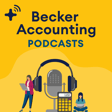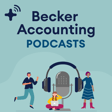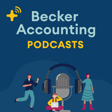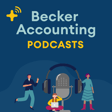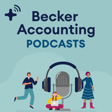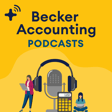
Cool Careers in Accounting Ep. 14 - Consistent in Our Ethics, Adaptable in Our Evolution with Barry Melancon
Barry Melancon, former CEO of the AICPA, sits with host and National Instructor, Mike Potenza, to share his journey to becoming a pivotal figure in accounting and his role in leading the AICPA through transformation. He emphasizes the constant importance of ethics—especially in accounting—while reflecting on how CPA Evolution addresses the new data and technology skillsets required for the profession. He highlights accounting’s adaptability while remaining the backbone of business decision-making, and encourages young professionals to dive into the opportunities, integrity, and value that accounting has to offer.
Earn CPE by listening to this podcast through a Becker Prime CPE subscription.
Listen to this episode through your Becker LMS platform to complete practice questions, pass the final exam, and earn CPE credit.
Already a Becker Prime CPE customer? Login here.
Have access to Becker CPE through your employer? Earn CPE credit for this podcast however you consume Becker CPE, either through your company’s LMS or via the Becker platform. Not sure where to log in? Check with your CPE admin.
Learn more about CPE Podcasts from Becker: https://www.becker.com/cpe/becker-podcasts
